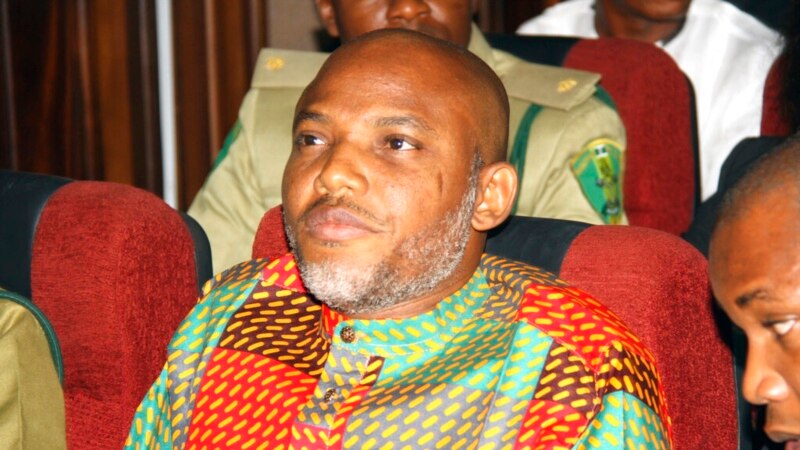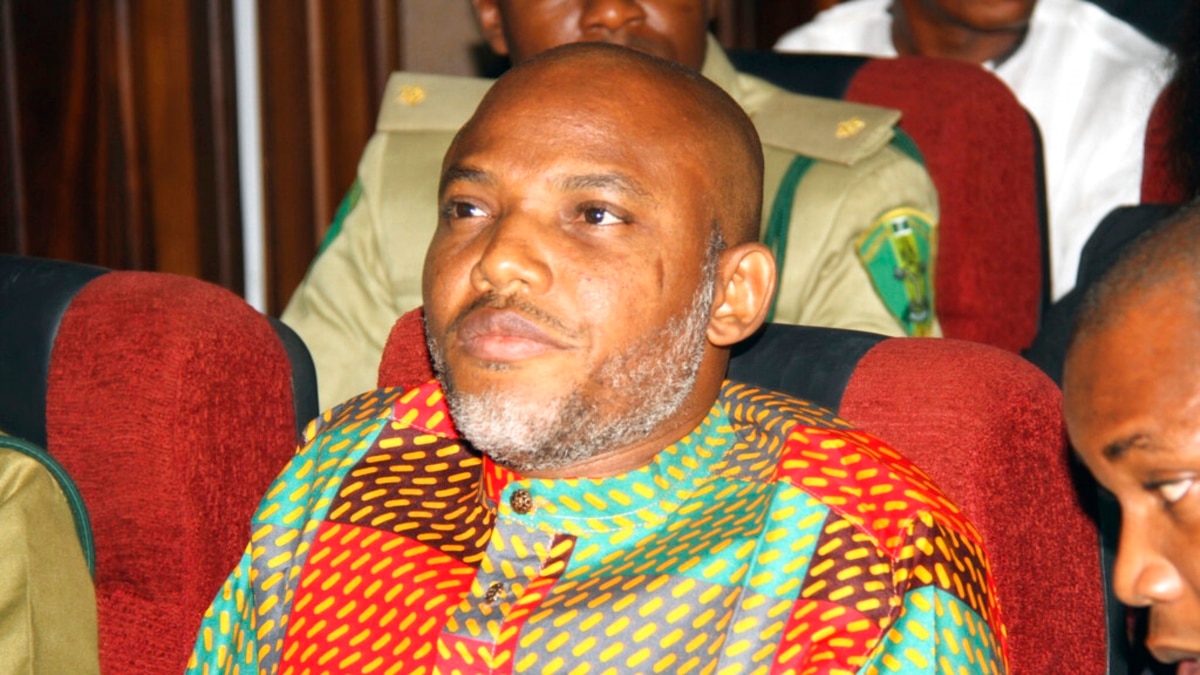This website uses cookies so that we can provide you with the best user experience possible. Cookie information is stored in your browser and performs functions such as recognising you when you return to our website and helping our team to understand which sections of the website you find most interesting and useful.


An appeals court in the Nigerian capital of Abuja has annulled charges against separatist leader Nnamdi Kanu and declared his arrest, detention and trial unlawful. For months, Kanu faced numerous charges, including terrorism and treasonable felony, which Nigerian authorities had leveled against him in federal court. Authorities say the offenses were committed during his separatist campaigns.
A three-judge panel held that Nigerian authorities breached local and international treaties to unlawfully arrest and detain Kanu.
One of the justices, Oludotun Adefope-Okojie, explained that authorities failed to publicly disclose where they arrested Kanu and therefore could not proceed with his trial.
He said, "No government is permitted to abduct anybody without following due process of extradition. Nigeria is not an exception."
The court also said authorities did not clearly state where and when Kanu committed all the offenses leveled against him.
Kanu was captured last year in Kenya and has been on trial since October 2021 from state police detention.
His lawyer, Ifeanyi Ejiofor, posted the court verdict on social media and said, "We have won," but could not immediately respond to calls for further comment.
Imo state resident Susan Ifeoma said the news has been heartwarming.
“People are rejoicing here, [even] me,” she said. “I was just jumping and dancing. We've been praying, asking God to intervene. And he has."
Kanu is leading decades-old agitation for the secession of Nigeria's southeastern region, fueled by a feeling of marginalization among the residents. The separatists want to form a republic called Biafra.
In the late 1960s, the Biafran agitation snowballed into a civil war that killed an estimated 1 million people, mostly from famine.
Nigerian authorities are yet to respond to the court ruling.



 Africana55 Radio
Africana55 Radio 
